Legislative Update
UW-Madison announces extension of Wisconsin Teacher Pledge program
 The University of Wisconsin-Madison announced today that they will be extending the Wisconsin Teacher Pledge program through the 2028-29 school year, thanks to a new $8 million in private funding. The program (launched in 2020) covers the cost of in-state tuition, testing, and licensing costs for students who attend a UW-Madison teacher preparatory program and pledge to teach in a Wisconsin school for at least 4 years (or three years in a high need district/high need specialty). Prior to the announcement, private funding would have only sustained the program through the 2026-27 school year.
The University of Wisconsin-Madison announced today that they will be extending the Wisconsin Teacher Pledge program through the 2028-29 school year, thanks to a new $8 million in private funding. The program (launched in 2020) covers the cost of in-state tuition, testing, and licensing costs for students who attend a UW-Madison teacher preparatory program and pledge to teach in a Wisconsin school for at least 4 years (or three years in a high need district/high need specialty). Prior to the announcement, private funding would have only sustained the program through the 2026-27 school year.From the UW-Madison School of Education: “As of spring 2024, 773 students have taken the Teacher Pledge. Of those, 354 are already teaching in 88 public school districts and 14 private schools across Wisconsin. This work is vital at a time when a nationwide teacher shortage continues to generate headlines and frustrate policymakers in search of solutions. A new report released in April by the Wisconsin Department of Public Instruction found Wisconsin educators continue to leave the state’s workforce “at an alarming rate” and that the retention of teachers is a “significant issue that needs to be addressed.”
OSS: Numerous grants, trainings, and resources are still available
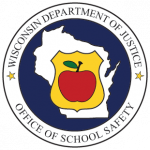 The Office of School Safety has shared the following message and resources for school districts. Visit the OSS website for more information on the office and the resources and services it provides to school districts.
The Office of School Safety has shared the following message and resources for school districts. Visit the OSS website for more information on the office and the resources and services it provides to school districts.It’s Easier Than You Think to Apply for a Digital Mapping Grant!
The Wisconsin Legislature has replenished 2021 Wisconsin Act 109 digital mapping grant funds, with an additional $2.5 million added to this opportunity. With additional funding, OSS continues to seek applications from Wisconsin public, private, charter, and tribal schools interested in obtaining digital mapping data. The grant announcement is available here: School Safety Grants.
Intimidated by grants? Never completed a grant application before? No problem! OSS is hosting a webinar series to help. We have one remaining webinar scheduled for the 2023-2024 school year: Monday June 10, 2 – 3:30 PM. Click here to register.
If you have any questions, please do not hesitate to contact OSS Grants Specialist, Jacob Dorff at schoolsafetygrants@doj.state.wi.us.
Legislature files suit against partial veto of early literacy funding bill
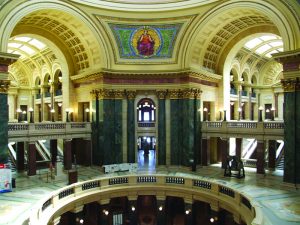 Earlier this week, the Republican-led legislature filed a lawsuit against both DPI and Governor Evers for the use of his partial veto on 2023 Wisconsin Act 100, the law that creates a funding structure for new early literacy initiatives created by 2023 Wisconsin Act 20. The legislature has been very concerned with Governor Evers’ partial veto authority on appropriations bills (a bill that spends money). They have attempted to avoid this authority by appropriating funds to the Joint Finance Committee (JFC) and then subsequently passing legislation to create a framework for how that money is to be used (Act 100). The governor partially vetoed Act 100 as if it was an appropriations bill when the legislature argues it is not. If a bill is not an appropriations bill, the governor can only sign it into law or veto it in its entirety. read more…
Earlier this week, the Republican-led legislature filed a lawsuit against both DPI and Governor Evers for the use of his partial veto on 2023 Wisconsin Act 100, the law that creates a funding structure for new early literacy initiatives created by 2023 Wisconsin Act 20. The legislature has been very concerned with Governor Evers’ partial veto authority on appropriations bills (a bill that spends money). They have attempted to avoid this authority by appropriating funds to the Joint Finance Committee (JFC) and then subsequently passing legislation to create a framework for how that money is to be used (Act 100). The governor partially vetoed Act 100 as if it was an appropriations bill when the legislature argues it is not. If a bill is not an appropriations bill, the governor can only sign it into law or veto it in its entirety. read more…
WMC files suit seeking to overturn Evers partial veto that increases revenue limits for the next 400 years
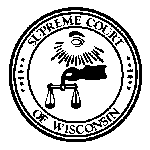 Wisconsin Manufacturers and Commerce has filed a lawsuit, directly with the Supreme Court, that seeks to overturn Governor Evers use of the partial veto to annually raise school revenue limits by $325 per pupil until 2425. During the biennium budget negotiations, Evers used his partial veto power (which lets Wisconsin governor’s strike out certain parts of appropriation bills when signing), to change individual words and digits in a sentence that was originally intended to raise revenue limits by $325 for the 2023-24 and 2024-25 school years.
Wisconsin Manufacturers and Commerce has filed a lawsuit, directly with the Supreme Court, that seeks to overturn Governor Evers use of the partial veto to annually raise school revenue limits by $325 per pupil until 2425. During the biennium budget negotiations, Evers used his partial veto power (which lets Wisconsin governor’s strike out certain parts of appropriation bills when signing), to change individual words and digits in a sentence that was originally intended to raise revenue limits by $325 for the 2023-24 and 2024-25 school years. The action drew much controversy from critics who pointed out that a previous 1990 constitutional amendment states that “[the governor] may not create a new word by rejecting individual letters in the words of the enrolled bill”. Strangely there is an exception to this rule in Wisconsin precedent, which allows a governor to take this type of action so long as the effect reduces appropriations. The suit also questions if by extending an appropriation past a timeline designated by the legislature, the governor is increasing appropriations, which they claim is unconstitutional given past precedent.
The WASB will be following this suit closely and update members when important actions are taken.
Action Needed: DPI proposed changes to waivers from the school start date appears to be stalled until next session
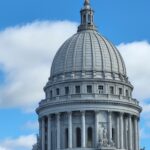 The Department of Public Instruction (DPI) recently proposed changes (Clearinghouse Rule CR 24-026) to the school start date rule that governs the issuance of start date waivers. The proposed rule provides more flexibility for school boards when seeking to adjust their school calendars to better meet the academic and local needs of their respective districts.
The Department of Public Instruction (DPI) recently proposed changes (Clearinghouse Rule CR 24-026) to the school start date rule that governs the issuance of start date waivers. The proposed rule provides more flexibility for school boards when seeking to adjust their school calendars to better meet the academic and local needs of their respective districts.
An unexpected development has occurred in the rule making process: Governor Evers has not approved the final rule text. This step is required before the rule can move to the legislative review step. This is surprising considering the governor previously approved the scope statement (a preliminary document describing the intent of the forthcoming rule). Proposed administrative rules must be sent to the legislature for review by the last general business day of the session to be taken up in that session. The last general business day for the 2023-24 legislative session was April 11th. Thus, the governor’s delay means the deadline has passed for the legislature to review the rule until the 2025-26 legislative session (which convenes in January).
While the rule will not be reviewed by the legislature until next session, it is still important that the governor approves the final rule so it can move forward in the next legislature. The WASB strongly supports this proposed rule based on our WASB Resolution supporting local control of the school start date. We urge school leaders to contact the governor’s office and request he approve CR 24-026. You can contact his office at (608) 266-1212 or submit comments online here. Read below to see more information about the proposed change to the start date. read more…
WPF issues report on school referenda
 From Wisconsin Policy Forum: “Voters across Wisconsin approved 62 of the 103 school district referenda placed on primary and general election ballots this spring. The 60.2% approval rate was the lowest in a midterm or presidential election year since 2010, with the most ballot questions for spring elections since at least 2000. More districts asked to increase property taxes for operations rather than capital needs, a sign of the stress they are facing from inflation, state caps on their revenues, declining enrollment, and the expiration of federal pandemic aid.
From Wisconsin Policy Forum: “Voters across Wisconsin approved 62 of the 103 school district referenda placed on primary and general election ballots this spring. The 60.2% approval rate was the lowest in a midterm or presidential election year since 2010, with the most ballot questions for spring elections since at least 2000. More districts asked to increase property taxes for operations rather than capital needs, a sign of the stress they are facing from inflation, state caps on their revenues, declining enrollment, and the expiration of federal pandemic aid.
Across ballots from February and April, 66.0% of all referendum questions asked voters to raise property taxes to support school district operations. This represents the highest share of operating referenda since at least 2000.
Yet as districts’ requests for additional revenue have intensified, voter support for these requests appears to be waning. Voter approval rates of school district referenda hovered around 50% for most of the late 2000s and early 2010s. Starting in 2012, however, voters approved referenda in greater numbers, with the passage rate peaking at 89.7% in 2018. read more…
Evers signs bill requiring Hmong and Asian American instruction in K-12 schools
 Governor Evers announced today that he has signed AB 232 into law as 2023 Wisconsin Act 266. The new law requires school boards to provide instruction on Hmong and Asian Americans as part of already required instruction on human relations and certain demographic groups. Similar legislation has been introduced several times in previous sessions and the idea has slowly gained an enormous showing of bipartisan support, passing the Assembly unanimously earlier this session.
Governor Evers announced today that he has signed AB 232 into law as 2023 Wisconsin Act 266. The new law requires school boards to provide instruction on Hmong and Asian Americans as part of already required instruction on human relations and certain demographic groups. Similar legislation has been introduced several times in previous sessions and the idea has slowly gained an enormous showing of bipartisan support, passing the Assembly unanimously earlier this session.
From a Legislative Reference Bureau Analysis: “Current law requires each school board to provide an instructional program designed to give pupils an understanding of human relations, particularly with regard to American Indians, Black Americans, and Hispanics. This bill directs school boards to include in that instructional program information related to understanding human relations with regard to Hmong Americans and Asian Americans.”
Referendum Results for the April 2nd Election
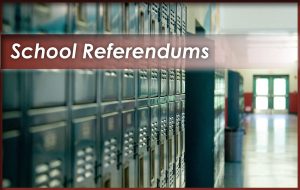 Preliminary (unofficial) results of last night’s election indicate that 56 of the 93 school referendums on the April 2 ballot were approved by voters of the districts where those questions were presented. That translates to a passage rate of slightly over 60 percent.
Preliminary (unofficial) results of last night’s election indicate that 56 of the 93 school referendums on the April 2 ballot were approved by voters of the districts where those questions were presented. That translates to a passage rate of slightly over 60 percent.
Complete preliminary results, as reported by Civic Media, are shown in the table below. More results and data will be updated as certified data reported to the DPI is made available.
- Referendums for Issuing Debt: 19 out of 30 passed (63%)
- Non-Recurring Referendum: 26 out of 43 passed (60%)
- Recurring Referendums: 11 out of 20 passed (55%)
Governor vetoes AB 377, a bill to regulate the participation of transgender athletes in school sports
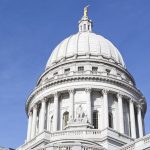 Governor Tony Evers has announced today that he has vetoed AB 377. The bill would have required all schools in Wisconsin that run athletics to organize school sports into one of three categories: male, female, or co-ed. In addition, the bill forbids male pupils from participating on a team designated for females and allows female athletes to bring legal action against a school district if they feel the district is not complying with the law. Earlier this session the bill passed the Assembly along party lines, and passed the Senate with one Republican voting against the bill. The governor had previously stated that he would veto the bill if it were to reach his desk.
Governor Tony Evers has announced today that he has vetoed AB 377. The bill would have required all schools in Wisconsin that run athletics to organize school sports into one of three categories: male, female, or co-ed. In addition, the bill forbids male pupils from participating on a team designated for females and allows female athletes to bring legal action against a school district if they feel the district is not complying with the law. Earlier this session the bill passed the Assembly along party lines, and passed the Senate with one Republican voting against the bill. The governor had previously stated that he would veto the bill if it were to reach his desk.
Redistricting 2024: state Assembly districts
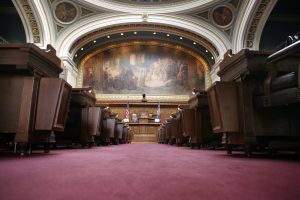 With new state legislative maps getting signed into law and the end of the 2023-24 legislative floor session, lawmakers across the state are turning their eyes to the coming election season. New maps bring many changes, including possible changes to longstanding relationships you might have built with your state representatives. The WASB wants to ensure that school leaders have the resources they need to stay up to date on the changes coming to the Wisconsin State Legislature, and how your advocacy efforts could be affected.
With new state legislative maps getting signed into law and the end of the 2023-24 legislative floor session, lawmakers across the state are turning their eyes to the coming election season. New maps bring many changes, including possible changes to longstanding relationships you might have built with your state representatives. The WASB wants to ensure that school leaders have the resources they need to stay up to date on the changes coming to the Wisconsin State Legislature, and how your advocacy efforts could be affected.
Below we look at the districts up for reelection in Nov. 2024 and track what legislators have made announcements about whether they intend to seek reelection, retire, move to run in a different district or for another office, etc. This Fall will see the election of all 99 state Assembly districts. Assembly district maps 2022 and 2024 can be found and compared HERE. read more…
